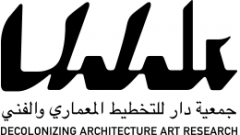Posted: 23.03.2010
The Lebanese Association for Plastic Arts, Ashkal Alwan, would like to announce:
Home Works V: A Forum on Cultural Practices
April 22nd – May 1st, 2010 Beirut, LebanonMilitarism – the army’s sway over politics and/or its governance in a given country – occupies an eminent position in many regimes in the Middle East. The case of Syria, Turkey or Israel can illustrate how the military institution has a central and decisive involvement in politics. These three regimes are more or less militarized; their political realities are diversely affected by the intervention of the army. In Israel for instance, the political elite is mainly formed of men from a military background, as is made clear by the predominance of ex-generals’ succession to the country’s governmental posts. In Turkey, the army has a strong hand in political activity and defends the secular regime; as such, it is not farfetched that it would intervene to topple an elected government, should it sense that there is a transgression of the foundations of the Republic of Ataturk. As for Syria, the army has total control over the government, preventing any form of power sharing. Ashkal Alwan intends to invite thinkers and artists to research and reflect on militarism and to present works that engage with this issue, based on the aforementioned examples without being limited to those specific countries. http://www.ashkalalwan.org
Decolonizing Architecture will present:
Oush Grab (the crows nest): Revolving Door Occupation
Since it’s evacuation by the occupation forces in 2006 the hilltop of oush grab was at the centre of a battlefield of many actors. Located at the edge of Beit Sahour (Bethlehem) and the desert it had been a fortress used by all colonial regimes that governed Palestine in the past century. In the recent intifadah tanks within this fortress have destroyed most Palestinian homes around it. The base Is also a point of natural singularity within the landscape as the last grassroots for thousands of migrating birds that descend on the hill twice a year- in fall and spring. Before evacuating it, Israeli soldiers have transformed the hill into a volcano like topography, where now the remnants of the military buildings stand like in a ghost town. Israeli settler groups now seek to establish a new settlement within these building. Palestinian and international activists confront them in what has become one of the most intense flash points with the Palestine frontier. Could architecture and spatial practices be used in the battle for this hilltop?





